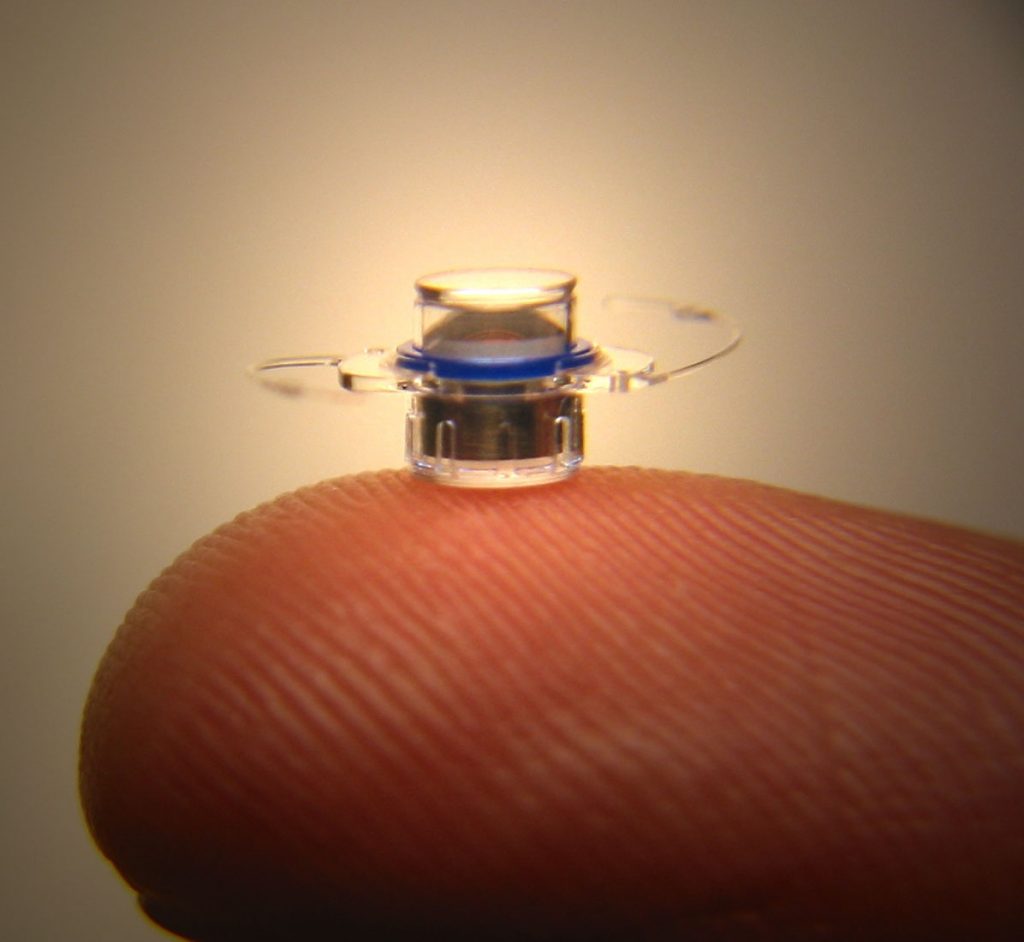Macular degeneration, the leading cause of legal blindness in Americans over the age of 60, damages the macula – the part of the retina that provides central vision. This loss of central vision affects a person’s ability to perform daily tasks. Unfortunately, macular degeneration has been known to cause depression and diminish quality of life.
The Implantable Miniature Telescope (IMT) is an extremely tiny implant that has been approved for end-stage age-related macular degeneration. With a combination of mirrors, the implant magnifies the image 2-3 times of the normal size and projects on the retina for the eye to see.
- Must be at least 75 years of age.
- Must have retinal findings of geography atrophy or disciform scar with foveal involvement.
- Must have BCVA of 20/160 – 20/800.
- Must have evidence of a cataract in one eye.
- Must be willing to undergo pre-operative screening and post operative training with a low vision therapist.
Source: UC Davis Health Systems (1), UC Davis Health Systems (2), Fox News via Gizmodo
Image sources: UC Davis Health Systems (1)


